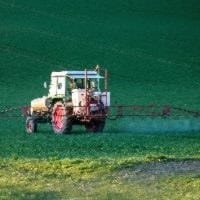(BRUSSELS) – A European Parliament committee voted Tuesday to ensure sustainable pesticides use and reduce the use and risk of all chemical pesticides by at least 50 per cent by 2030.
By 2030, the EU must reduce the use and risk of chemical plant protection products by at least 50% and the use of so-called “more hazardous products” by 65%, compared to the 2013-2017 average, said the Environment Committee.
The Commission has proposed a 50% target for both based on the 2015-2017 average.
MEPs want each member state to adopt national targets and strategies, based on the substances sold per year, their hazard level and the size of their agricultural area. The Commission would then verify whether national targets need to be more ambitious to achieve EU 2030 targets.
In order to maximise the impact of national strategies, member states must also have in place crop-specific rules for at least those five crops where a reduction of the use of chemical pesticides would have the biggest impact.
MEPs also want to ban the use of chemical pesticides (except those authorised for organic farming and biological control) in sensitive areas, and within a five-metre buffer zone, such as all urban green spaces including parks, playgrounds, recreation areas, public paths, as well as Natura 2000 areas.
EU countries must ensure that chemical pesticides are only used as a last resort, as set down in Integrated Pest Management.
To better equip farmers with substitute substances, the MEPs want the Commission to set an EU 2030 target for increasing the sales of low-risk pesticides, six months after the entry into force of the Regulation. At the same time, the Commission must also evaluate methodologies to accelerate the authorisation process of low-risk pesticides and biocontrol, as current lengthy procedures are a significant obstacle to their uptake.
By December 2025, the Commission must examine the differences in the use of pesticides on imported agricultural and agri-food products relative to EU produce and, if needed, propose measures to ensure imports meet EU-equivalent standards. In addition, the export of pesticides not approved in EU would be prohibited.
Further information, European Parliament


